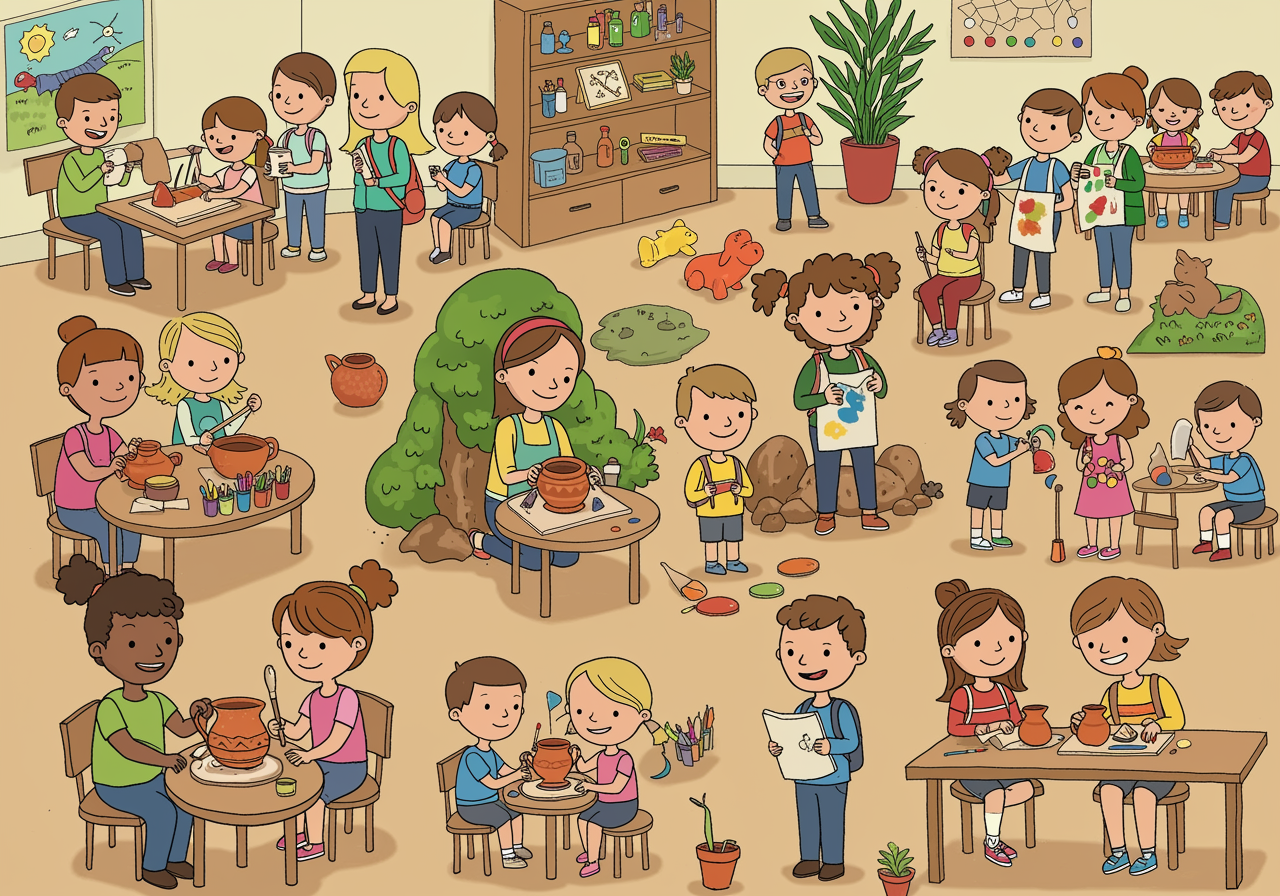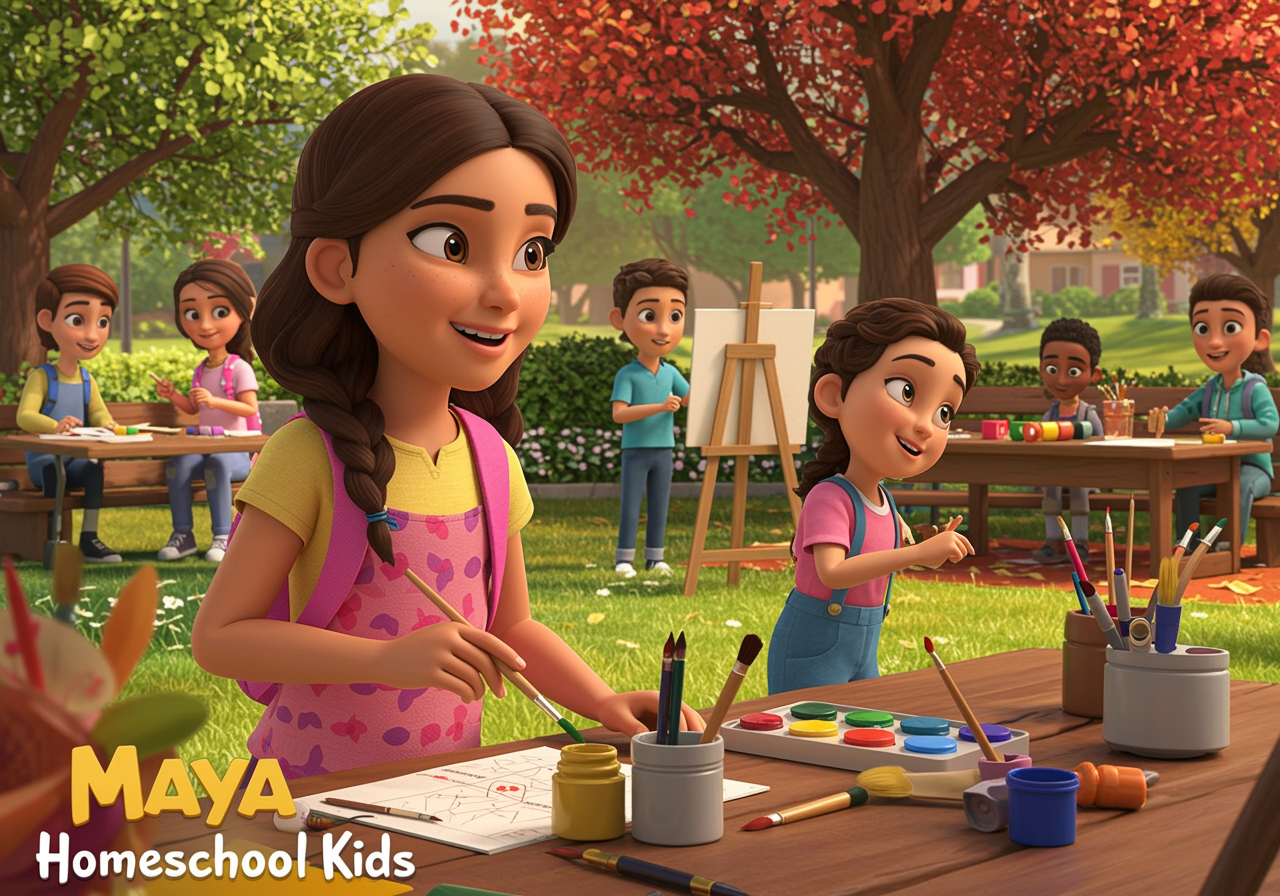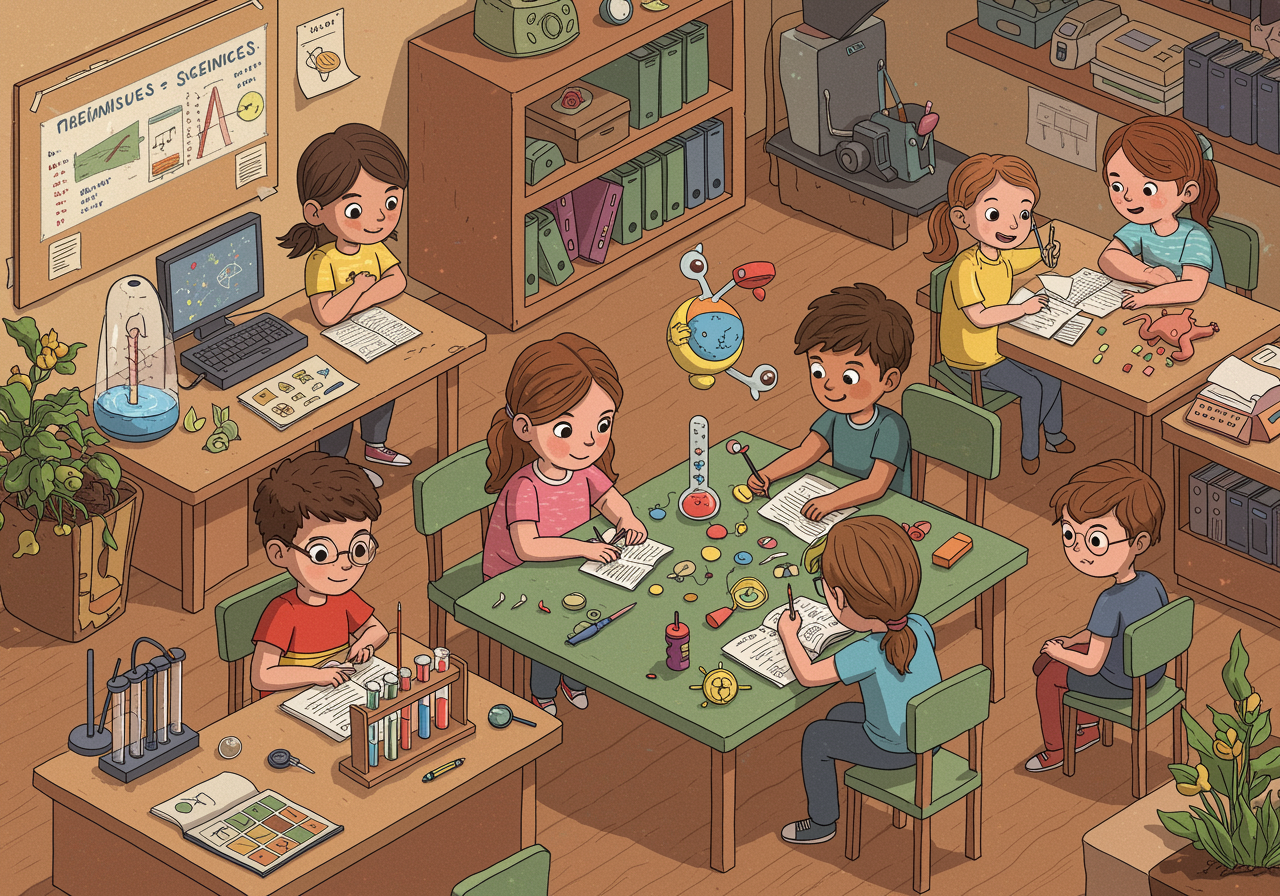The Great Friendship Experiment: How Learning at Home is Changing the Social Game

Exploring how kids connect, learn social skills, and build friendships in a changing world
Dive into the fascinating world of how homeschooling is reshaping friendships and discover what this means for social skills in the next generation.
Overview
Think about it: for generations, kids learned social skills mostly in classrooms with 20-30 other kids their exact age. But now, more families are choosing homeschooling, and that's creating a whole new social experiment! Kids are forming friendships in coffee shops, museums, co-op classes, and online communities instead of just hallways and cafeterias. This shift is changing how young people develop social skills, build confidence, and navigate friendships. Understanding these changes helps families think about what social development really means and how different environments shape the way we connect with others.

Understand in 30 Seconds
Get up to speed quickly
- Traditional vs. New Social Spaces: Instead of making friends mainly at school, homeschooled kids often meet friends through community activities, sports teams, art classes, and family networks.
- Mixed-Age Friendships: Homeschoolers often hang out with kids of different ages more naturally, which can teach them to adapt their communication style to different people.
- Quality vs. Quantity: Some homeschooled kids have fewer daily social interactions but spend more intentional, focused time with their friends when they do meet up.
- Parent-Guided Social Learning: Parents often have more opportunities to observe and guide their kids through social situations rather than hearing about them secondhand.
Real Life Scenario
Situations you can relate to
Imagine Maya, who just switched to homeschooling after 8th grade. At her old school, she saw the same 150 kids every day and had lunch with her friend group of six. Now, she meets friends at her twice-weekly co-op classes, her Thursday art studio, and weekend hiking group. Instead of navigating hallway drama daily, she's learning to start conversations with new people and maintain friendships with kids she sees less often but connects with more deeply. Her social calendar looks different—fewer daily interactions but more varied and intentional social experiences. Is this better or worse for building social skills? That depends on Maya and what kind of learner and social person she is!

Role Play
Spark a conversation with “what if” scenarios
What if your family was considering homeschooling and you were worried about missing out on school friendships?
- Role play: Take turns being the worried kid and the reassuring parent. Discuss real concerns and brainstorm creative ways to meet friends and build social skills outside of traditional school.
What if you met a homeschooled kid who seemed super confident talking to adults but shy around kids their own age?
- Role play: Role-play different social situations and discuss how various environments might strengthen different social muscles, just like physical exercise.
What if you had to design the perfect social environment for developing friendship skills?
- Role play: Work together to create an imaginary social space, discussing what elements help kids feel comfortable, confident, and connected to others.
FAQs
Frequently asked questions people want to know
Do homeschooled kids have trouble making friends?
Not necessarily! They often make friends through activities, sports, co-ops, and community groups. The friendships might form differently, but many homeschooled kids have rich social lives.
Are homeschooled kids less prepared for the 'real world' socially?
Research shows mixed results. Some homeschooled kids feel more comfortable with adults and mixed-age groups, while others miss practice with large peer groups. It depends on the individual and their experiences.
Why are more families choosing homeschooling now?
Families cite reasons like flexible schedules, personalized learning, family values, safety concerns, and wanting more control over their child's education and social environment.
Examples in the Wild
See how this works day to day
- The National Center for Education Statistics reports that homeschooling grew by over 30% during 2019-2021, with about 2.6 million kids now learning at home (U.S. Department of Education)
- Many cities now have homeschool co-ops where families share teaching duties and kids take classes together 1-3 days per week (National Home Education Research Institute)
- Studies show homeschooled students often score higher on measures of self-esteem and leadership skills compared to traditionally schooled peers (Journal of School Choice research review)
- Virtual learning platforms during COVID introduced millions of kids to online friendships and digital collaboration skills (Educational Technology Research and Development journal)
In Summary
What you should know before you start
- Homeschooling is creating new ways for kids to meet friends and learn social skills outside of traditional classrooms
- Different social environments strengthen different social muscles—some kids thrive with mixed-age groups, others prefer same-age peers
- The quality and intentionality of social interactions might matter more than the quantity of daily contact
- Both homeschooled and traditionally schooled kids can develop strong social skills—it depends on the individual child and their opportunities
Pro-tip for Parents
You got this!
If your child expresses curiosity about homeschooling or concerns about their current social environment, resist the urge to immediately defend your family's choice. Instead, explore their feelings together and discuss what makes a friendship meaningful to them. Ask questions like 'What kind of social energy fills you up?' and 'When do you feel most like yourself around other people?' This helps them understand their own social needs rather than just comparing different educational approaches.

Keep an Eye Out For
Find these examples in everyday life
- News stories about homeschool co-ops, hybrid programs, or micro-schools in your community
- Conversations with families who've tried different educational approaches and how it affected their kids' friendships
- Your child's reactions to different social settings—when do they seem most confident and connected?
Explore Beyond
Look up these related research topics
- How social media is changing friendship for all kids, regardless of where they go to school
- The science of friendship: What actually makes lasting friendships and how they benefit our brains
- How different cultures around the world approach education and social development for children